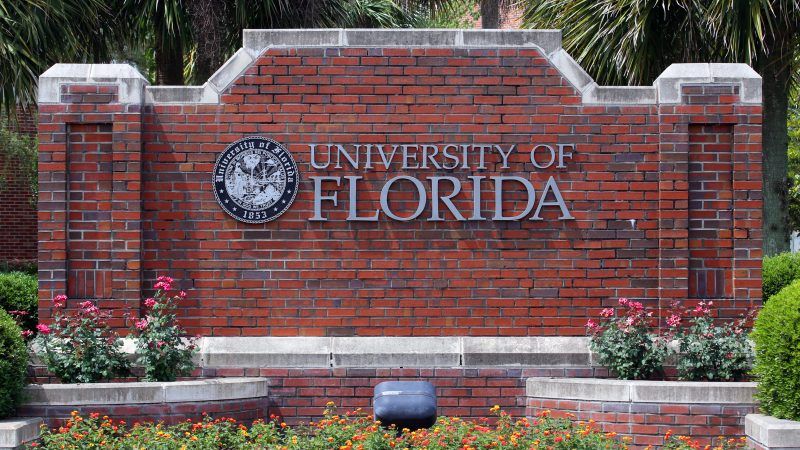Taking a career as a Physician assistant is worthwhile since PA’s work under the supervision of physicians and provide support to healthcare teams. Hence, if you have the desire to make a career in the medical field in Iowa but not necessarily to study medicine, enrolling in any of the best accredited PA schools in Iowa is a good way to start.
Basically, if you really want to become a Physician Assistant in Iowa, you will have to undergo advanced education and extensive medical training. That is why you must enroll in one of the best and accredited schools in Iowa for a proper study of the program. As much as physician assistant might sound easy, it is quite tedious and you need proper education before you start practicing.
Choosing to study PA programs in Iowa will expose you to courses and clinical hours which will prepare physician assistants students to provide support during surgical procedures. And also develop treatment plans, and work in a rapidly changing healthcare environment.
This comprehensive guide below serves as a resource for those interested in pursuing a career as a Physician Assistant in Iowa.
Who is a Physician Assistant?
Physician assistants practice medicine alongside doctors, nurses, and therapists. Just like doctors, these physician professionals examine, diagnose, and treat patients, but must do so under the supervision of a physician.
Equally, Physician assistants may work in hospitals, clinics, doctor’s offices, or other specialized physician settings in one or more areas of medicine, such as family medicine, psychiatry, or surgery.
However, the duties of a physician assistant vary by specialty, state, and service area. In some rural or neglected areas, for example, a physician assistant may act as a primary care provider, examine patients, prescribe medications, and repair broken bones.
In other settings, a physician assistant may play a narrower role, such as exclusively closing incisions after surgery or providing vaccines to pediatric patients.
You Can Also Check Out Accredited Physician Assistant Schools In North Carolina 2024
Why Study Physician Assistant PA Programs In Iowa?
There is a great benefit when it comes to studying the physician assistant program in Iowa. First, you should know that there are huge benefits to choosing to study PA in any of the accredited schools in Iowa.
For instance, PAs make up the fifth fastest-growing profession in the United States, and the top 10% of earners pull in more than $146,000 per year.
Here is a full details of why you should take any of the Physician Assistant programs in Iowa this 2024;
Opportunity to Work with Doctors
It is no coincidence that PAs work closely with highly qualified doctors on a daily basis. In fact, state licensure laws require PAs to be in a formal relationship with a supervising physician.
This relationship includes daily teamwork that will teach you new things and help you develop your patient care skills.
Stability of Employment
When you work in one of the most dynamic career paths in the country, you can rest easy knowing that you will never be unemployed for long. The good growth in employment in the industry is due in part to the rapid growth in overall health care.
BLS data indicates that health care employment is expected to increase by 18% by 2026, more than twice as fast as average jobs in the United States.
A variety of working parameters
PAs work in all physician settings where doctors are found: private practices, clinics, hospitals, and mental health facilities.
You can direct your career in an avenue that suits you best, whether you like quiet doctors’ offices or lively emergency services.
You Can Specialize
Clinical education integrated into PA programs includes many areas of medicine. You will be able to target your clinical study and your job search in the specialty that captivates you the most, such as:
- Family medicine
- Internal Medicine
- Emergency medicine
- Pediatrics
Very Comfortable Earnings
According to the Bureau of Labor Statistics (BLS), PAs are the fifth fastest-growing profession in the United States. When it comes to careers, it’s also the one that comes with an incredibly promising salary.
PAs can expect a median annual salary of just over $108,000, with the top 10% of the profession earning more than $146,000.
You Can Also Check Out What Is Physician Assistant Shadowing? How to Find & Benefits
How Long Does it Take to Complete a PA Program in Iowa?
Fortunately, the path to becoming a physician assistant is not as confusing as that of a nurse practitioner, but if you want to become a PA, you still need to plan ahead.
However, where you are on your school study will determine how long it will take you to become a physician assistant in Iowa.
Here we will give you an idea of how long you can expect to become a PA based on your current educational level in Iowa.
From High School to an Accredited PA School in Iowa
If you are currently a high school student in Iowa, you have two ways to go about gaining access to a physician assistant career. First, you can take an accelerated physician assistant program in Iowa specifically designed for high school graduate students.
In general, these programs take approximately five years to complete and grant students a bachelor’s and master’s degrees.
If you don’t choose to take an accelerated program specifically for recent high school graduates, your next step is to earn a bachelor’s degree. Be sure to take the necessary courses to apply to PA programs in Iowa during your undergraduate studies.
However, getting your bachelor will take four years. Then you will have to follow a medical aid program. This will take an additional two years. So if you are currently in high school and choose not to take an accelerated program, you can expect it to take at least six years to become a physician assistant.
Bachelor Degree to an Accredited PA School in Iowa
On the second note, if you currently have or are working on your bachelor’s degree, your next step is to apply for a physician assistant program in Iowa.
Basically, PA programs in Iowa generally take between 24 and 27 months. Therefore, it will take you about two years to become a physician assistant. If you want to work during your PA program, some schools offer a three-year, part-time option.
What Requirements Do I Need for PA School in Iowa?
No matter where you are currently in your studies, there are a few things you should know that will help you become a physician assistant in the most effective way possible.
First, most schools require multiple prerequisite courses before applying. Make sure you know what courses public address programs generally require and complete them before applying.
Ideally, these prerequisite courses are completed as part of your bachelor’s degree to maximize efficiency. If you have not taken these prerequisite courses, this will increase the time it will take you to become a physician assistant. These courses must be taken before applying for an AP program.
Second, many PA programs require students to have hands-on experience with the patient before applying. The amount of experience varies from 500 to 2,000 hours. Consider the time it will take to complete this extensive experience and the time it will take to become a physician assistant.
To get this hands-on patient care experience, you may also need to consider obtaining a physician certificate, such as becoming a physician assistant in your training plan.
How Much Does it Cost to Become a Physician Assistant?
According to the American Academy of Physician Assistants, the average cost of a physician assistant program was $50,567 for a state resident and $61,088 for an out-of-state student.
Fortunately, some types of programs are much cheaper than others and can offer students significant savings.
However, the average cost of attending public schools in Iowa costs approximately $31,210, while an out-of-state public school costs on average much more at $56,934. While the averages for private schools are even higher.
On average, tuition fees for international students in private accredited PA schools in Iowa are approximately $66,014. While the average cost of tuition is $65,573 for PA students at private universities.
If you plan to attend a private university for your physician assistant programs in Iowa, tuition fees are almost the same regardless of your state of residence. It’s important you know that the most cost-effective way to become a PA is through a state public university.
Unanticipated Costs of Physician Assistant Programs
Unfortunately, tuition is not the only cost that your Physician assistant program may incur for you. Most PA programs in Iowa are full-time, making it almost impossible to keep a job while you are in school. But, you’ll still have to pay the usual living expenses like rent while you’re taking your programs in Iowa.
Some schools may also require traveling to clinical sites throughout their PA program. If your PA program requires you to work clinical hours off-site, be sure to budget for travel costs.
Some programs predict that students could spend about $10,000 annually to travel to and from the PA program clinical sites. Be sure to consider travel costs and locations when deciding which accredited PA schools to attend in Iowa for your program.
Carefully calculate the cost of living, travel, and additional tuition, such as books and a laptop, in the cost of your PA studies. This will be essential to help you accurately determine the loan amount you need to complete your physician assistant program.
How Much Do Physician Assistant PA In Iowa Earn?
If you are interested in becoming a physician assistant, you will need as much information as possible about this professional career. You’ll want to know more about the educational requirements that lie ahead and what you must do to access a competitive PA program in Iowa.
You also probably want to know more about the salary range for jobs in this field. Do you need a lot of education to work as a Physician Assistant? Does a good salary await you when you leave school in Iowa?
Here you will find the answers to these questions and more below.
Typical Salaries
The median salary for a physician assistant is $87,342 per year. When looking at this number, it is important to remember that most people in this field have less than 20 years of experience. For this reason, there are many physician assistants who have reached their full potential.
Even entry-level positions tend to pay quite high salaries. As someone gains experience and high rank, they can earn a much higher salary. The highest-paid physician assistants earn more than six figures a year in Iowa.
The Highest Paying Positions
As with most professional fields, some types of PA jobs in Iowa offer higher wages than others. People are more likely to earn high wages if they work in an emergency room. This is true even for entry level positions.
Salary Growth
Anyone who works as a Palestinian Authority will see a regular increase in her salary during the first 10 years of her career. After that, increases may be more difficult to find.
That said, someone with a lot of experience will be able to move on to other types of positions that offer higher salaries. Additionally, many of these positions offer excellent benefits.
What Is the Job Outlook Of Physician Assistant In Iowa?
With an average salary of around $90,000, the field of physician assistants is becoming very popular with students.
As a student in any of the schools, you will be rest assured that you will have jobs when they leave and how the field will evolve in the future.
What Accredited Schools offer Physician Assistant (PA) Programs in Iowa?
There are basically 4 schools in Iowa that offers PA programs. And these schools are top-notch.
Specifically, their extensive training will allow you to recognize and treat diseases of all kinds. With this knowledge base, you will eventually be able to help volunteer at clinics in the United States and abroad.
As a PA student in any of the schools in Iowa, you will receive training according to the medical model, exposing you to many different facets of medicine.
In addition, PA training programs in Iowa schools are accredited by the National Commission on Certification of Physician Assistants.
Best & Accredited Physician Assistant (PA) Schools in Iowa | 2024 Ranking
The Best Accredited PA Schools in Iowa rankings are analyzing colleges and universities that offer a bachelor’s, master’s, and doctoral degrees in Physician Assistant. We looked at over 4 factors to determine the top and Best Accredited PA Schools in Iowa for intending students.
You can go through our ranking methodology below:
Ranking Methodology
In selecting the Best and Top-Ranked Best Accredited PA Schools in Iowa in 2020, we will be considering several ranking factors. Note that this World Scholarship Forum Ranking of Best Accredited PA Schools in Iowa is actually considering about 4 major factors but we will explaining some in detail. They include:
Program Length: We consider these as one important criterion for ranking the Top and Best Accredited PA Schools in Iowa in 2020. Because some of these universities can have a good number of programs they offer but the time to complete the program might be longer than other schools.
Accreditation: This criterion is very much important because a school can be considered good with great programs but yet do not have quality. So, we consider the body of accreditation as well as certification for each of these schools before ranking them. Whether they fall in the category of regional or national accreditation.
Graduation Rate: Here, we consider if these schools have a high tendency of graduating their students. Some can get enrolled but get stuck at the end. Also, we put into consideration whether school graduates are employable by great institutions. These factors are equally very much important.
Exam Pass Rate: Here, we consider if these schools have a high tendency of graduating their students. and after graduation, what is their success rate in the license exam they are expected to take.
Here is a list of the Best & Accredited Physician Assistant PA Schools in Iowa:
University of Iowa (Carver College of Medicine)
Address: Iowa City, IA 52246, United States
Graduation Rate: 100%
Exam Pass Rate: 100%
Program Length: 28-month
Roy J. and Lucille A. Carver School of Medicine is a highly qualified medical school where students learn to become clinicians, researchers, and educators. Students come to Iowa to study medicine in a program that uses case-based learning as the basis for their education.
The University of Iowa Medical Assistance Program is a 28-month thesis program without a dissertation awarding the Master of Medical Studies (MPAS) upon completion. A class of 25 students registers in August of each year.
Tuition fees are determined annually for Iowa residents and non-residents. There are mandatory college fees as well as additional fees, including but not limited to book and equipment fees.
Although all financial aid for students from general academic sources is administered by the Carver College of Medicine Office of Student Financial Aid.
The University of Iowa’s Physician Assistant Program has a student attrition rate below the national average. Upon graduation, the graduates have a 100% employment rate.
Since 1974 the graduates of The University of Iowa have enjoyed a first-time pass rate of greater than 99.99% compared to the national average of 85% during this same time period. No graduates have failed the exam since 1996.
For the most recent performance reports of PA graduates, the University of Iowa PA Class of 2019 achieved a 100% pass rate compared to the national pass rate of 93%.
Above all, the Accreditation Review Commission on Education for the Physician Assistant (ARC-PA) has granted Accreditation-Continued to the University of Iowa Physician Assistant Program sponsored by the University of Iowa.
Admission Requirements
Here are the basic admission requirements of the University of Iowa Physician Assistant Program in the Department of Physician Assistant Studies and Services. There are other requirements that are not specified here, so you have to visit the official page below to gain such knowledge.
Des Moines University (Master of Science in Physician Assistant Studies)
Address: 3200 Grand Avenue Des Moines, IA 50312
Graduation Rate: 96%
Exam Pass Rate: 100%
Program Length: 25-month
Des Moines University Medical Assistant program prepares students to thrive in a growing profession focused on helping them live healthier lives.
In addition, this 25-month program emphasizes the interrelationships of functions and organs and educates students about the medical, psychological, and social needs of each patient.
Your experiences as an assistant medical student at DMU will prepare you to practice with experience and confidence.
Truly, the Des Moines University Physician Assistant Program is one you should not miss out on. They basically have 14:1 students to faculty ratio. This means that there is a high rate study since few students are allocated to just one teacher.
Also, the department graduation rate is 96%.
The average first-time PANCE pass rate for students at Des Moines University over the past 5 years is 98.4%. The national average during the same time was only 95%.
Most importantly, 30% of their students recieve DMU fully funded scholarships.
Above all, the Accreditation Review Commission on Education for the Physician Assistant (ARC-PA) has granted Accreditation-Continued status to the Des Moines University Physician Assistant Program sponsored by Des Moines University.
Admission Requirements
In addition, as a candidate for admission to the physician assistant program at DMU you must meet the following requirements:
- A bachelor’s degree from a regionally accredited institution within the United States is required and
- A minimum cumulative grade point average of 2.8 on a 4.0 scale is required in order to be considered for the physician assistant program. All prerequisite courses must be taken at regionally accredited institutions. No grade lower than a C will be accepted for prerequisite coursework. CLEP credits, AP credits, and P/F credits will not be considered for prerequisites.
St. Ambrose University (College of Health and Human Services)
Address: 518 W. Locust St.Davenport, IA 52804
Graduation Rate: 98%
Exam Pass Rate: 100%
Program Length: 29 Months
At SAU, they prepare highly qualified and compassionate medical assistants by providing deep learning opportunities in the classroom and in the communities. You will work alongside experts and specialists from the medical communities, and with the program’s teachers and mentors.
Her 29-month program includes 124 credit hours. They accept a new class of 30 students per year through a competitive application process and classes begin in the summer.
Graduates will be able to apply for a license to practice in one or more of the 50 states, and they are preparing them well. All members (100%) of the 2019 MPAS class passed the NCCPA exam on the first attempt.
Tuition fees at a price are $12,675 / semester for new students entering during the 2024-2024 school year. There are additional costs for textbooks and technology. We estimate the total tuition fees for the program to be $101,400.
University of Dubuque PA Program
Address: 2000 University Avenue Dubuque, IA 52001
Graduation Rate: 96%
Exam Pass Rate: 100%
Program Length: 27 Month
The University of Dubuque Master of Medicine program prepares physicians who are trained in all aspects of medical care, with a focus on primary care in rural and underserved areas.
They are proud to announce the success of the 2018 promotion at a 100% success rate for the first time on the PA National Certification Exam and they hope you will join us in making an impact on the future of care. of health!
Tuition, establishment and program fees, for both state residents and state residents, for the Master of Science in Assistant Medicine are approximately $90,000.
Accreditation Review Commission on Education for the Physician Assistant, Inc. (ARC-PA) placed the University of Dubuque Physician Assistant Program sponsored by the University of Dubuque on Accreditation-Probation.
Admission Requirements
Degree: Baccalaureate degree from a regionally accredited institution in the United States or Canada.
Residency: Applications will only be accepted from U.S. citizens or permanent residents.
GPA: Minimum cumulative grade point average of 3.0 and science prerequisite grade point average of 3.0 on a 4.0 scale.
Anatomy and Physiology must be completed within a seven-year period of applying.
Best & Accredited Physician Assistant (PA) Schools near Iowa
Physician assistants play a huge role in the medical field. Perhaps, the only difference they have with our Doctors is that they don’t possess the license to perform surgery.
Despite this inadequacy, they perform a lot of important functions which we will discuss later. But before that, let’s look at the Accredited Physician Assistant (PA) Schools in Minnesota.
Here is a list of Best Accredited Physician Assistant (PA) Schools in Minnesota:
Or better still click the link below to see the details of all PA Schools in Minnesota
FAQs
Physician assistants are integral members of the health care team in many hospitals and clinical practices. The role of the physician assistant (PA) is to practice medicine under the direction and supervision of a licensed physician.
The first PAs began training in 1967 at Duke University in North Carolina. The program began to assist Vietnam veterans who had served as medics. It allowed them to transition into civilian life by gaining credentials to use their training and extraordinary experience.
Working interdependently with physicians, PAs provide diagnostic and therapeutic patient care in virtually all medical specialties and settings. They take patient histories, perform physical examinations, order laboratory and diagnostic studies, prescribe medications, and develop patient treatment plans. Their job descriptions are as diverse as those of their supervising physicians, and include clinical practice, patient education, team leadership, medical education, health administration, and research.
With implementation of the Affordable Care Act, further mandated reductions in resident training hours, and a widening shortage of primary care clinicians, new opportunities are arising for PAs in primary care and nearly every other field. The 34% growth since 2006 reflects the fact PAs are becoming an attractive and economical alternative to physicians. In fact, the US Department of Labor projects an additional 39% growth in the need for PAs in the next 10 years.
PAs have opportunities in a wide variety of specialties. These range from Primary Care to Surgery. See the list below of some additional specialties:
Traditional Practices
Internal Medicine
Primary Care
Family Medicine
Hospital-Based
Residency Support
Hospitalist
Rapid Response Teams
Subspecialties
Surgery
Pediatrics
Women’s Health
Emergency Medicine
Non-Traditional Practices
Plastic Surgery
Transplant
Neurosurgery
Critical Care Medicine





